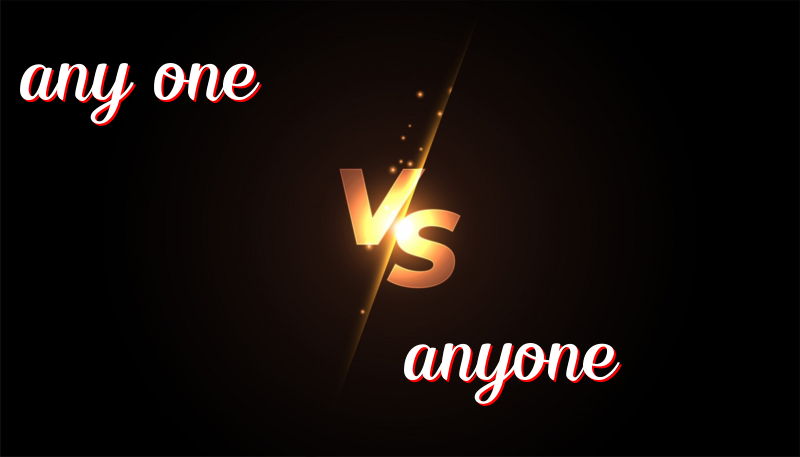Understanding the Difference Between Any One and Anyone: Usage, Examples, and Tips
Difference Between “Any one” and “Anyone”
English words can sometimes be tricky. Two words that often confuse people are “any one” and “anyone.” Even though they look similar, they have different meanings. Let’s learn more about them!
History
The word “any” comes from Old English and means “one, some, or all.” The word “one” is also from Old English and means “a single unit.” “Anyone,” as one word, was first seen in the 16th century. Over time, English speakers started using “anyone” as one word to mean “any person.”
How to Use “Any one”
“Any one” is used when you talk about a single person or thing from a group. You focus on one item or person, not more than one. You often see it used with “of.” For example:
- Any one of these apples is good.
- Can any one of your friends help?
- Pick any one toy from the shelf.
- Did you read any one of those books?
- Are any one of these shirts blue?
How to Use “Anyone”
“Anyone” is used to mean any person at all. It does not refer to a specific person. It’s more general than “any one.” For example:
- Does anyone know the answer?
- Can anyone come to my party?
- Has anyone seen my keys?
- Anyone can learn to play the piano.
- If anyone asks, I’ll be outside.
Trick to Remember the Difference
Here’s a simple trick: Use “any one” when talking about one thing or person from a group. Use “anyone” when talking about people in general.
Summary
“Any one” and “anyone” may seem alike, but they are used differently. Remember:
- “Any one”: Refers to a single person or thing from a group. Example: “Any one of the cookies.”
- “Anyone”: Refers to any person at all. Example: “Anyone can try.”
By knowing these differences, you can use them correctly in your writing and speaking!

Leave a Reply
You must be logged in to post a comment.